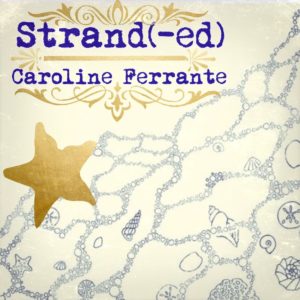 Hey, check it out: Some of the greatest albums in the history of contemporary popular music were never actually officially made. Why? That’s because some of those albums fell victim to a musician’s temptation to over-stack the deck. Or, in other words, those would-be great albums were turned into not-so-great double albums.
Hey, check it out: Some of the greatest albums in the history of contemporary popular music were never actually officially made. Why? That’s because some of those albums fell victim to a musician’s temptation to over-stack the deck. Or, in other words, those would-be great albums were turned into not-so-great double albums.
Jay-Z should have served jail time for making his second “Blueprint” a double-disc. Even he eventually admitted the mistake by releasing the combined, pared down “Blueprint 2.1” collection. Ask half of Fleetwood Mac and they’ll tell you that “Tusk” was overwrought with more tracks than it needed. Shoot. Check out Phil Collins, who only a month ago rereleased his completely unnecessary Motown set, “Going Back,” by chopping the playlist in half.
Add Caroline Ferrante’s “Strand(-ed)” to that list. There’s a really good record somewhere in here, but unless she wants to pull a Shawn Carter and someday offer up a mere “Strand,” it’s unlikely the world will ever hear it. Or, well, it’s unlikely that the world will ever hear it the way it should be presented: Concise, focused and devoid of all fat. Yet, at 18 tracks with varying production qualities, this thing feels bloated, a record that overstays its welcome at least twice over.
First, the good. “Singalong with the Stars” is charming with its orchestral strings that cleverly walk the line between bluegrass and classicism. Plus, it helps that the track is easy to … well … sing along to. With a complementary acoustic guitar solo dividing the song in two and pretty backing vocal harmonies that aren’t afraid to scat, it amounts to one of the set’s most memorable moments.
“What a Day” is even better as it ups the cute meter with aplomb, complete with a “yippee ki yi yay” thrown in for good measure. Here, the ukulele is Ferrante’s weapon of choice, and while she exudes signs of strength in her voice elsewhere, here, she thins out her vocals wonderfully, perfecting the indie-grass formula that will forever be appealing to a certain blend of music fan. A fiddle supporting the bare-boned structure then connects all the dots tastefully.
Turning it down serves the singer well, too. “See Me Home” is a warm ballad that succeeds with help from a rare shot of adequate production. Her voice sounds rich and she doesn’t hold back from stretching it into a longing that seeps through the speakers with soul. “What Do You Do,” with a bluesy electric guitar and a dark chorus — “What do you do When the world spits on you And you can’t find shelter from the storm” — works just as well, Ferrante’s occasionally morose voice doing the bulk of the heavy lifting.
But then there’s the bad. Or, well, maybe not bad, but most certainly gratuitous. “Harvest Moon” comes at the absolute worst time — track 11, right when you think the record is winding down — and it. Just. Never. Ends. Making matters worse is the fact that it kind of/sort of sounds like it was recorded on an iPhone sitting in an adjoining room. Lyrically, it becomes a task to decipher what exactly it is she’s singing, making for a vocal pattern that sometimes comes off as a series of moans.
She then doubles down with the de facto sequel, “Chesapeake Lullaby,” which is slightly more coherent, but extends itself beyond seven minutes. And nobody, no matter how good you are, should offer up a seven-plus minute song 12 tracks into an 18-track Americana record. When it appears to fade down about halfway through, you begin to applaud its level of restraint, but by the time you get to minute five, you’re either asleep or infuriatingly confused. Why is this happening? And when will this stop?
Other unwarranted moments come packaged in similar lo-fi production. “Start Again” is smothered in tint, almost entirely devoid of all low end. “Slam on the Breaks” is a fine enough idea, but its roots-funk could benefit from a bit more punch. And there isn’t a single good reason that something as uneven and disorganized as “Rhythm & Rhyme” shouldn’t be on any record ever. It’s the loosest she gets and it’s indicative of what plagues this set as a whole.
So, while “Strand(-ed)” has its moments of value, it ultimately becomes bogged down by overextension and the lack of an editor. Cutting it in half would make it a pretty good LP and if she really wanted to get ambitious, going even further and whittling it down to a six or seven-song EP might have even been perfect. But what we have is what we have. And despite Caroline Ferrante’s pleasant voice and adequate performances, it’s just too large a task to fully overcome the distended nature of this collection.
It all adds up to a potentially great album that, sadly, was never actually officially ever made.
** 2 STARS OUT OF 4 **
